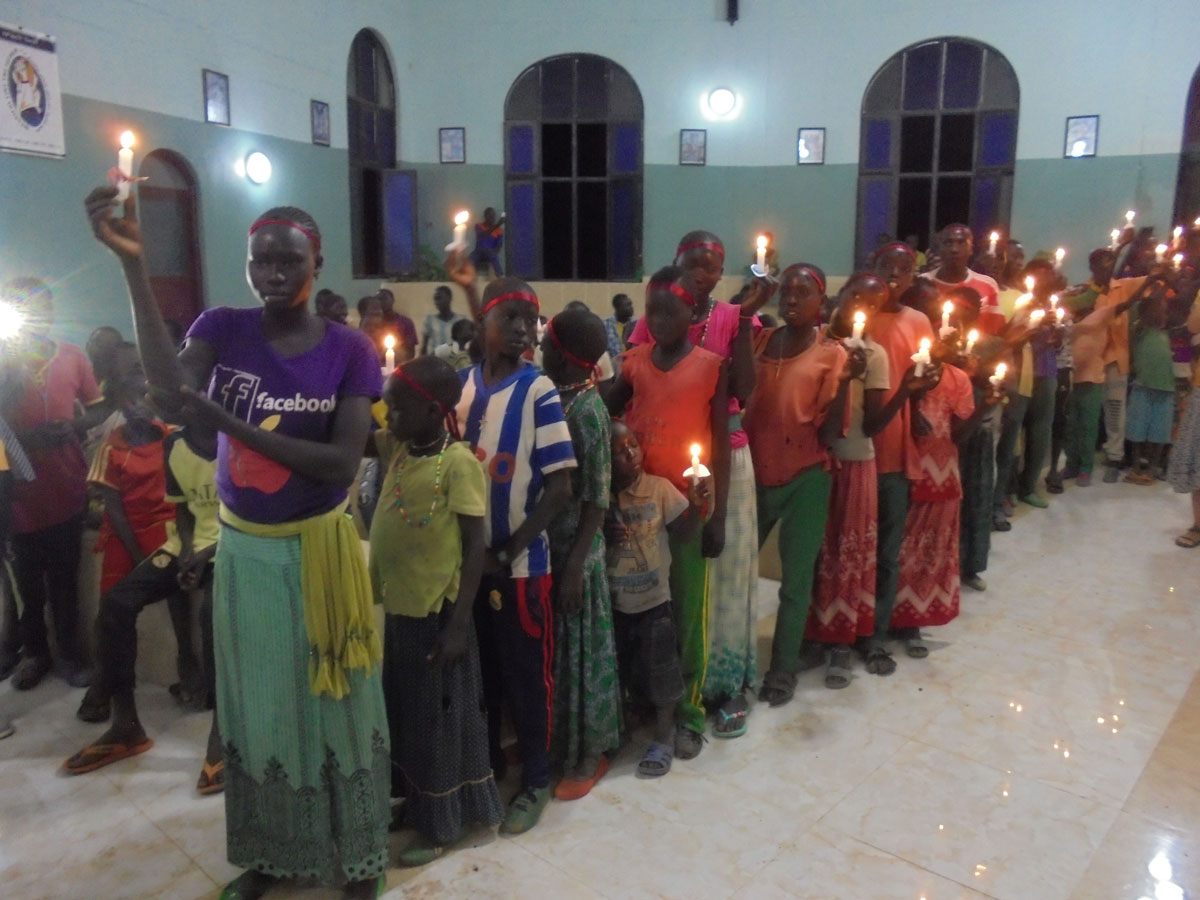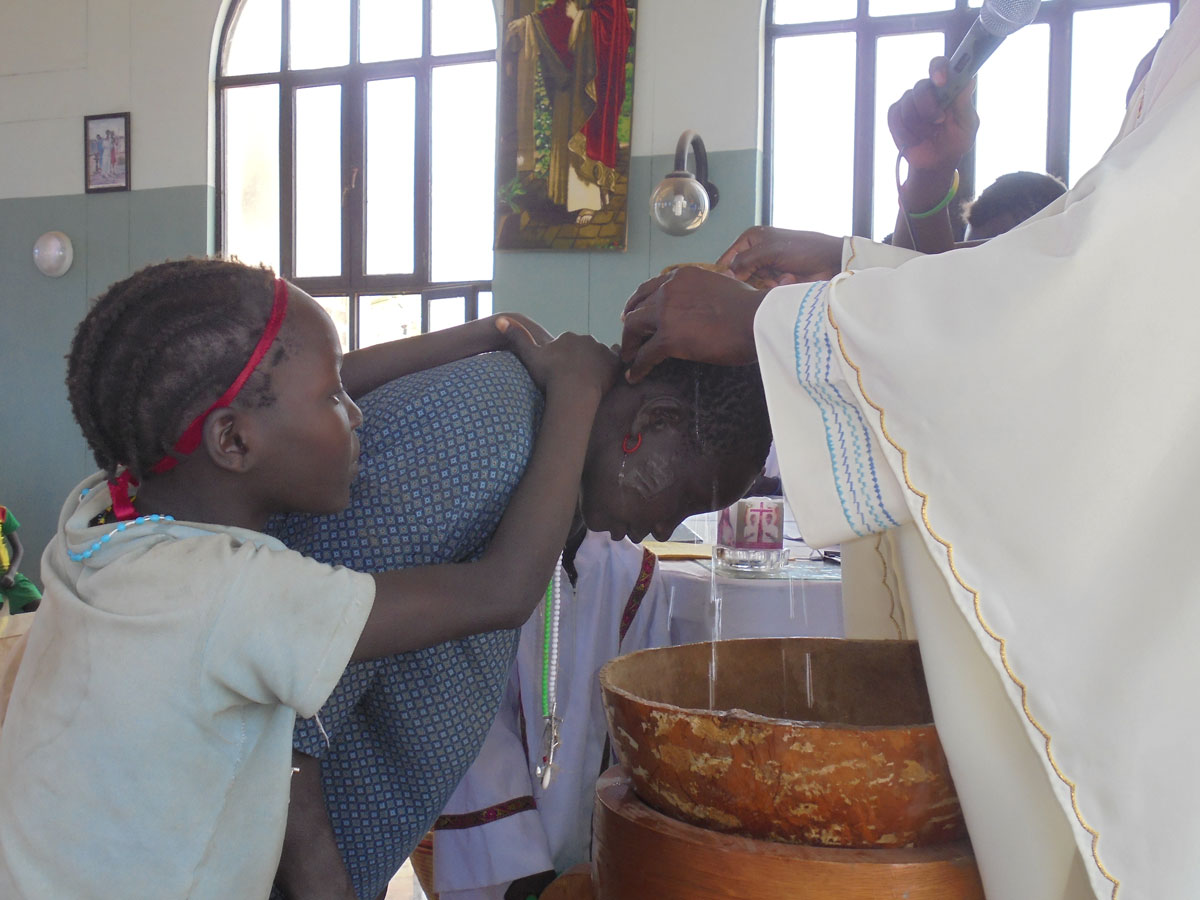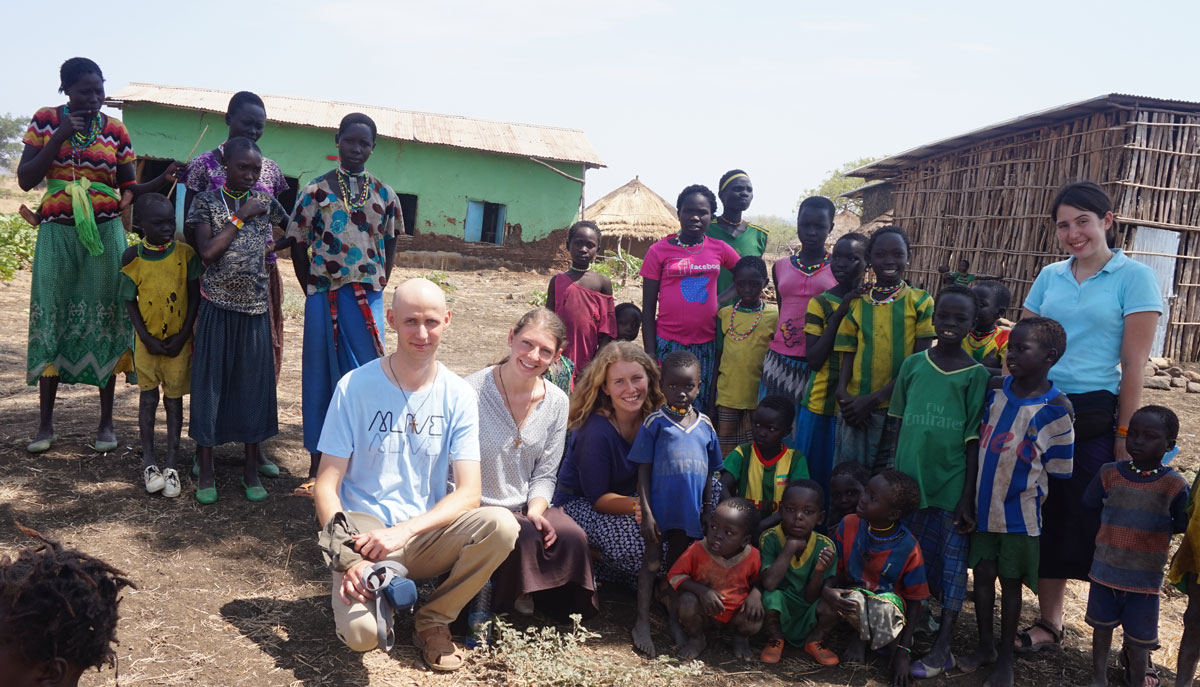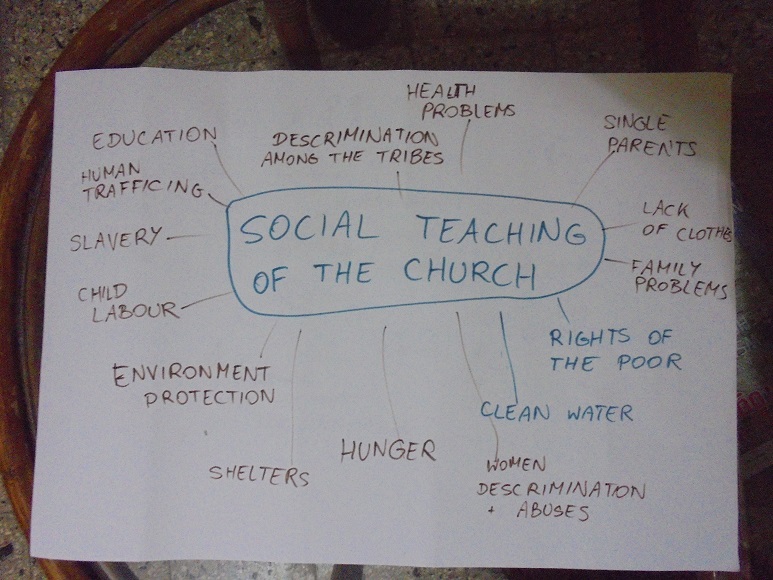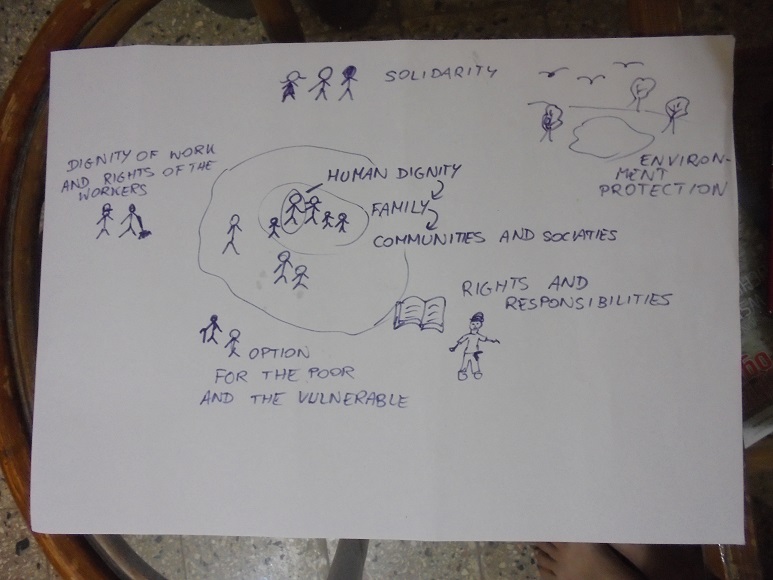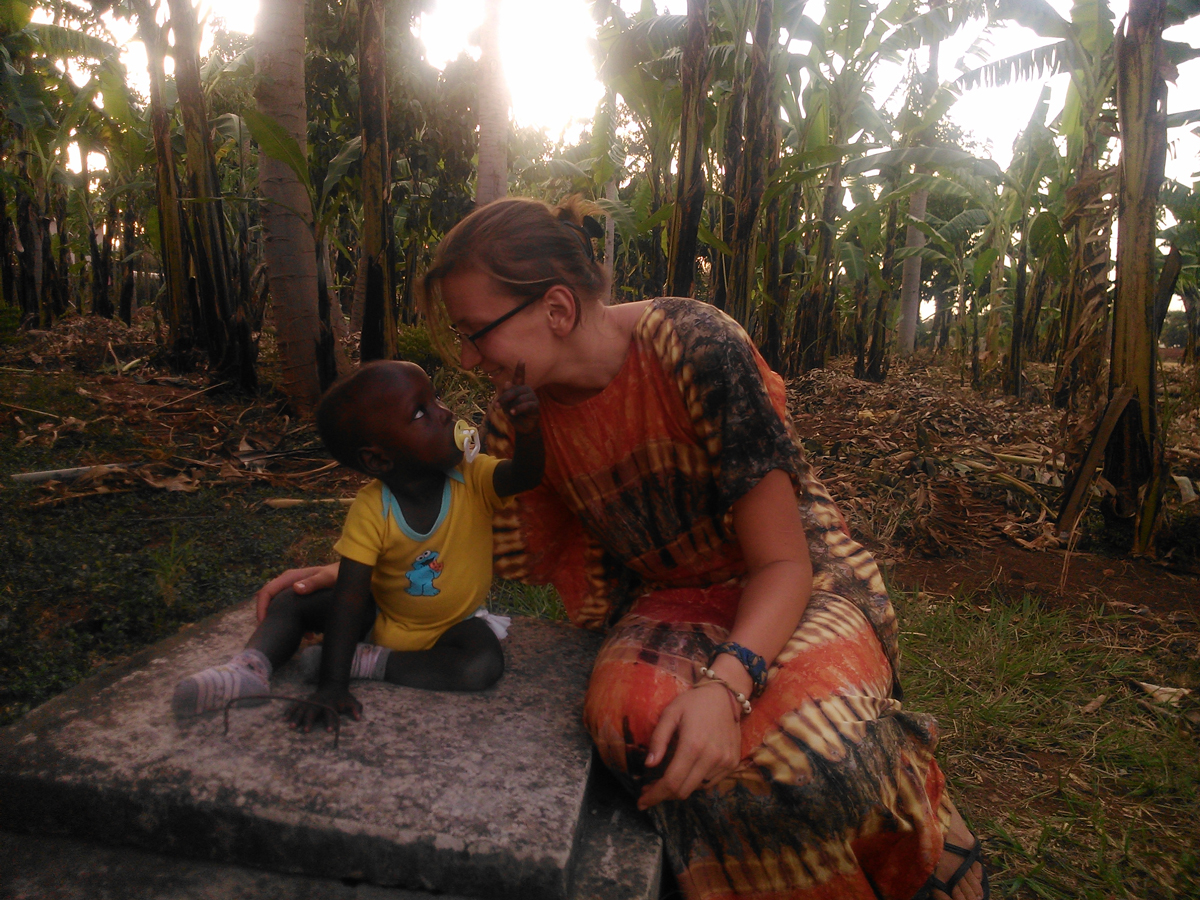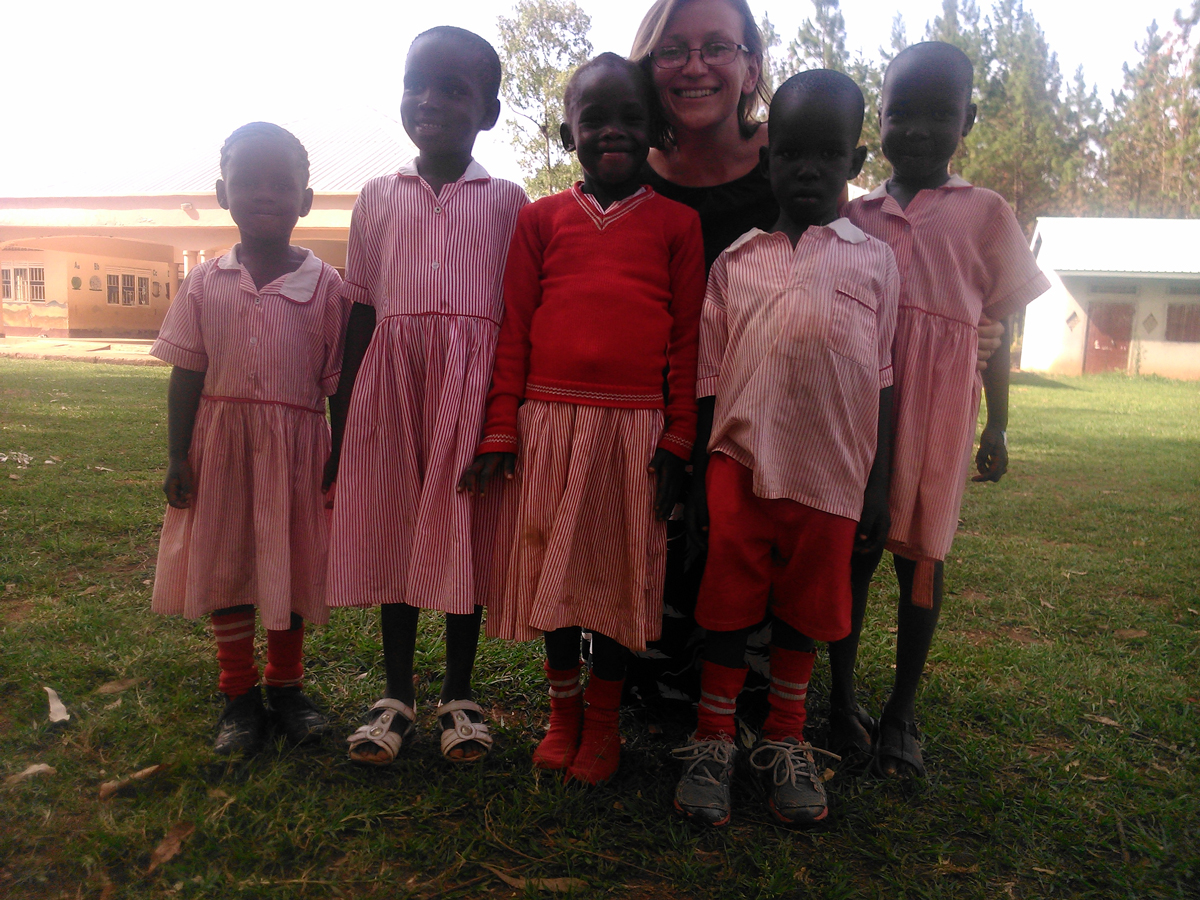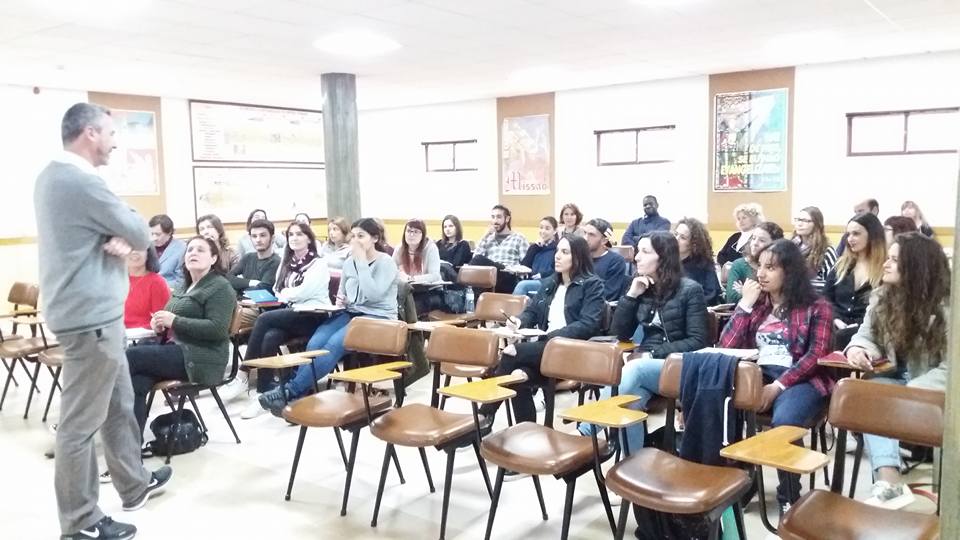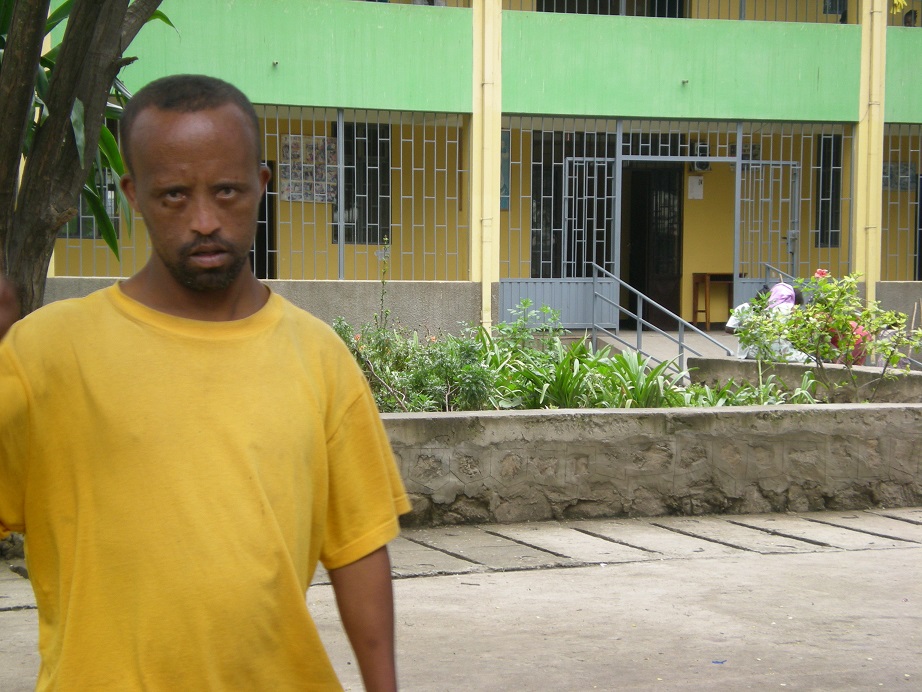This year our community spent Holy Week and Easter at the Comboni missions among the Gumuz tribe. Madzia and I stayed in Gublak most of the time; Adela and Tobiasz stayed in GilgelBelez. However, we all visited both places. I would like to share with you something of this impressive experience.
The journey from Addis Abeba to GilgelBelez was very tiring. We spent 13 hours on a bus packed with people. At times, only the beautiful landscape gave us some relief. We arrived in the evening and, while we were having supper together, the fathers told us a lot of stories about the local people. Many of them sounded incredible. We were very happy to have the opportunity to meet those people and the missionaries during their daily activities.
We spent the next day in GilgelBelez, a town where many different tribes, including the Gumuz, live. The Gumuz face discrimination in their daily life because of the dark colour of their skin. They were even discriminated by the churches until the Catholic Church came. Today the parish community is made up entirely of Gumuz people. In the days before Easter we could observe them working together preparing for the feast. They all worked hard for the good of the community. We also visited a certain boy and his family, whom Madzia helped two years ago. She showed him and his parents some exercises and found crutches for him. Now he is able to walk on his own. It was nice to see the good results of Madzia’s work. We also visited the town and the kindergarten belonging to the parish.
After our short visit to GilgelBelez we moved on to visit Gublak, a mission founded five years ago. Before the Triduum we saw the daily work of the missionaries. They celebrate Mass in the morning and then each one goes about his work. The main job is visiting villages to teach the people about Christ and our faith. We went to some villages together with them. The first thing they do when they arrive in a village is to greet people. Only after the greetings can the meeting begin. The people pray and sing and, then the fathers, the sisters or the catechists give them some instruction. Some of the people are already baptized while others are still catechumens. The catechists act as translators from Amharic into the Gumuz language. There are very few texts in this language and the missionaries speak only Amharic. During a meeting with the women, Adela and Tobiasz gave them testimony about family life. They had prepared it for some days with their Amharic teacher and it was their first speech in Amharic (after a three-month course!). Congratulations to them!
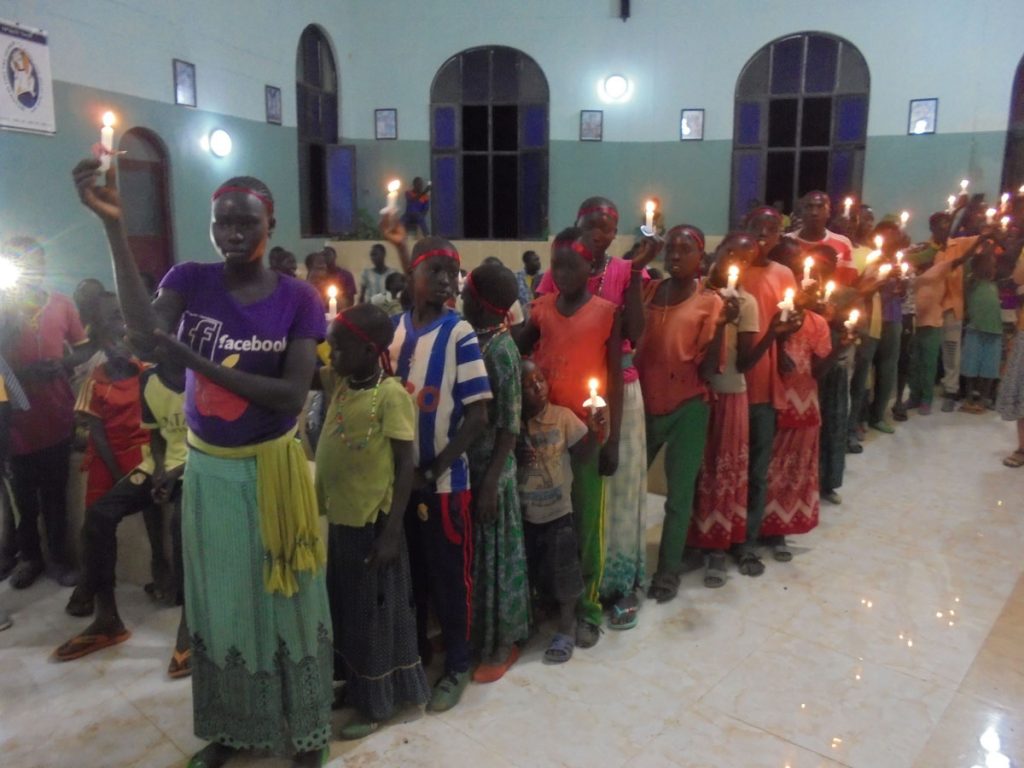 Then we started the Triduum. I went with Father Isayas to bring the catechumens to our compound on Thursday. Starting from the furthest village we brought some of them on the pick-up car. The catechumens who live close to the mission came on foot to the church in the evening. On Holy Thursday evening, I went with Fr. Isayas to a chapel where we celebrated the Last Supper Mass. There were around 50 people (most of them children or teenagers). During his homily the father described what happened at the Last Supper and explained, about the institution of the Eucharist. Then he washed feet of twelve chosen young people. After the Mass, we had a time of adoration of the Blessed Sacrament. I must say that the youth behaved properly.
Then we started the Triduum. I went with Father Isayas to bring the catechumens to our compound on Thursday. Starting from the furthest village we brought some of them on the pick-up car. The catechumens who live close to the mission came on foot to the church in the evening. On Holy Thursday evening, I went with Fr. Isayas to a chapel where we celebrated the Last Supper Mass. There were around 50 people (most of them children or teenagers). During his homily the father described what happened at the Last Supper and explained, about the institution of the Eucharist. Then he washed feet of twelve chosen young people. After the Mass, we had a time of adoration of the Blessed Sacrament. I must say that the youth behaved properly.
After that we took some of them to our compound where they joined the 130 young people already there. From Thursday till Sunday the youth stayed in the compound. They had prayer, teaching, and group work and participated in the main program: the Stations of the Cross, the Friday Liturgy, the Passover Liturgy and, the Sunday Easter Mass. I was very impressed by the people. They participated very actively. The catechists who are also young boys served all this time, from the morning until night. They did it with joy, without complaining. They translated, they organized the prayers, the services, the meals and, they kept order and discipline. During the Passover Liturgy 102 catechumens were baptized, on Sunday there was a group of 24 adults who also received baptism. Even if the Mass lasted so long, it was great to see the people who became Christians. It was something very meaningful in their lives. Some of them were really moved.
Most of the new Christians are very young, children or teenagers. Most of the adults who received the baptism were the mothers of the children who were baptized in past years. It is amazing how the Catholic Church is growing where there were no Christians at all just a few years ago. Many of those people don’t know how to read or write and do not know Amharic. Nevertheless, they listened to the missionaries and believed. Of course they still need Christian formation and that’s why the missionaries’ work is so important. Saint Daniel Comboni must be very happy to see the fruits of their work.
CLM Ethiopia




